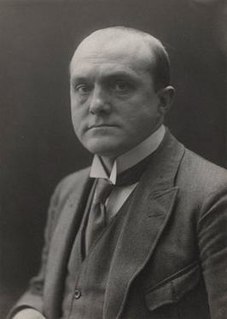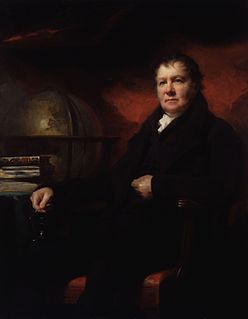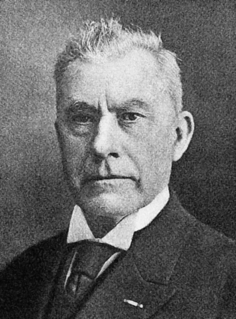A Quote by Wilhelm von Humboldt
In every remodelling of the present, the existing condition of things must be supplanted by a new one. Now every variety of circumstances in which men find themselves, every object which surrounds them, communicates a definite form and impress to their internal nature. This form is not such that it can change and adapt itself to any other a man may choose to receive; and the end is foiled, while the power is destroyed, when we attempt to impose upon that which is already stamped in the soul a form which disagrees with it.
Related Quotes
This is a human form in which every Divine entity, every Divine principle, that is to say, all the names and forms ascribed by man to God, are manifest... You are very fortunate that you have the chance to experiences the bliss of the vision of the form, which is the form of all gods, now, in this life itself.
Through death you find yourself, because you no longer identify with form. You realize you are not the form with which you had identified neither the physical nor the psychological form of "me". That form goes. It dissolves and who you are beyond form emerges through the opening where that form was. One could almost say that every form of life obscures God.
It must be understood that prime matter, and form as well, is neither generated nor corrupted, because every generation is from something to something. Now that from which generation proceeds is matter, and that to which it proceeds is form. So that, if matter or form were generated, there would be a matter for matter and a form for form, endlessly. Whence, there is generation only of the composite, properly speaking.
This doctrine ['that the condition of man cannot be ameliorated, that what has been must ever be, and that to secure ourselves where we are we must tread with awful reverence in the footsteps of our fathers']is the genuine fruit of the alliance between Church and State, the tenants of which finding themselves but too well in their present condition, oppose all advances which might unmask their usurpations and monopolies of honors, wealth and power, and fear every change as endangering the comforts they now hold.
Among the innumerable mortifications which waylay human arrogance on every side may well be reckoned our ignorance of the most common objects and effects, a defect of which we become more sensible by every attempt to supply it. Vulgar and inactive minds confound familiarity with knowledge and conceive themselves informed of the whole nature of things when they are shown their form or told their use; but the speculatist, who is not content with superficial views, harasses himself with fruitless curiosity, and still, as he inquires more, perceives only that he knows less.
The Author of nature has not given laws to the universe, which, like the institutions of men, carry in themselves the elements of their own destruction; he has not permitted in his works any symptom of infancy or of old age, or any sign by which we may estimate either their future or their past duration. He may put an end, as he no doubt gave a beginning, to the present system at some determinate period of time; but we may rest assured, that this great catastrophe will not be brought about by the laws now existing, and that it is not indicated by any thing which we perceive.
I have now come to a stage of realization in which I see that God is walking in every human form and manifesting Himself alike through the sage and the sinner, the virtuous and the vicious. Therefore when I meet different people I say to myself, “God in the form of the saint, God in the form of the sinner, God in the form of the righteous, God in the form of the unrighteous.
Mathematics is a form of poetry which transcends poetry in that it proclaims a truth; a form of reasoning which transcends reasoning in that it wants to bring about the truth it proclaims; a form of action, of ritual behavior, which does not find fulfilment in the act but must proclaim and elaborate a poetic form of truth.
The form of government which you admire, when its principles are pure is admirable indeed. It is productive of every Thing which is great and excellent among men. But its principles are as easily destroyed as human nature is corrupted. Such a government is only to be supported by pure religion or Austere morals.
In its most primitive form, life is, therefore, no longer bound to the cell, the cell which possesses structure and which can be compared to a complex wheel-work, such as a watch which ceases to exist if it is stamped down in a mortar. No, in its primitive form life is like fire, like a flame borne by the living substance;-like a flame which appears in endless diversity and yet has specificity within it;-which can adopt the form of the organic world, of the lank grass-leaf and of the stem of the tree.
All that is limited by form, semblance, sound, color is called object. Among them all, man alone is more than an object. Though, like objects, he has form and semblance, He is not limited to form. He is more. He can attain to formlessness. When he is beyond form and semblance, beyond "this" and "that," where is the comparison with another object? Where is the conflict? What can stand in his way? He will rest in his eternal place which is no-place. He will be hidden in his own unfathomable secret. His nature sinks to its root in the One. His vitality, his power hide in secret Tao.









































